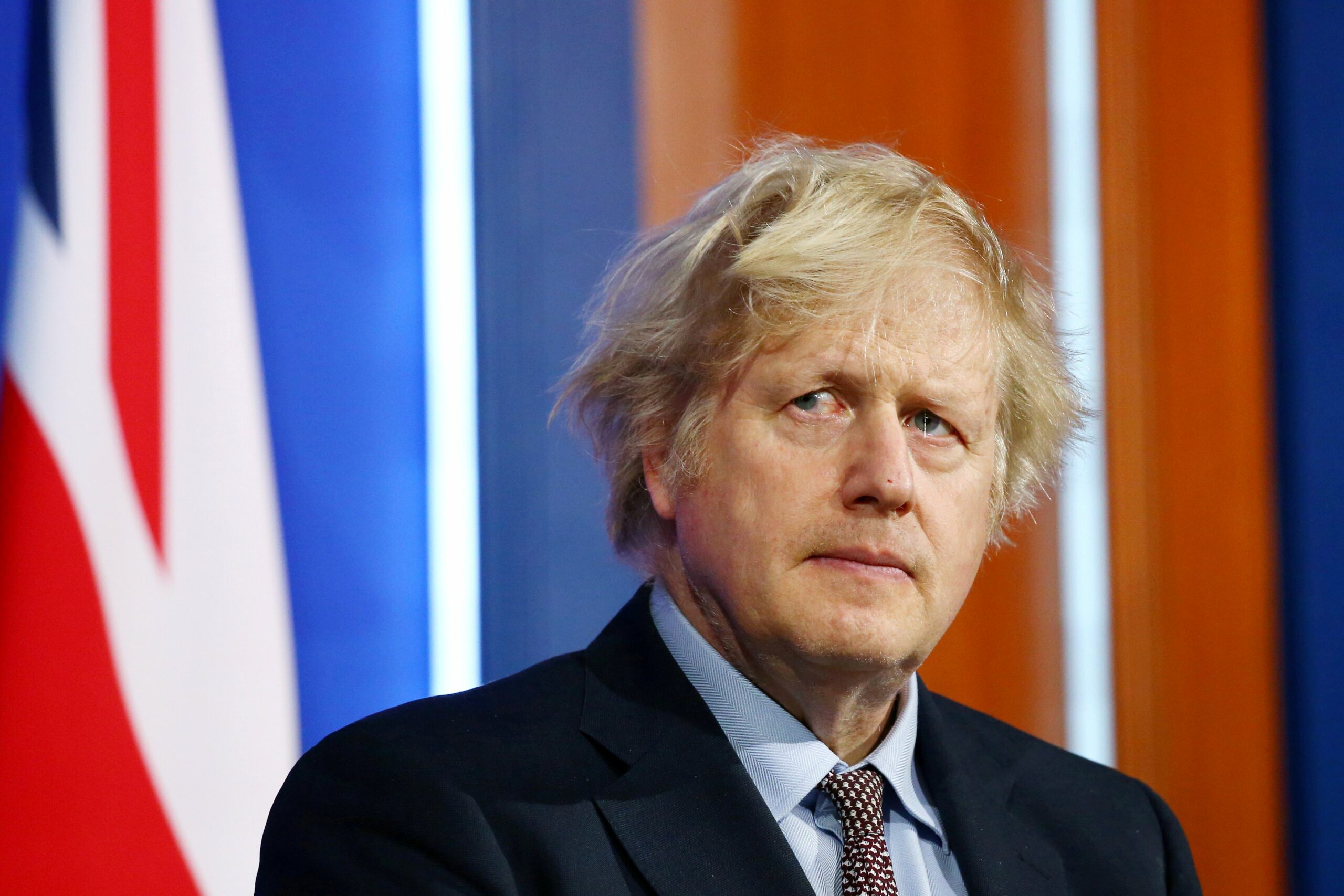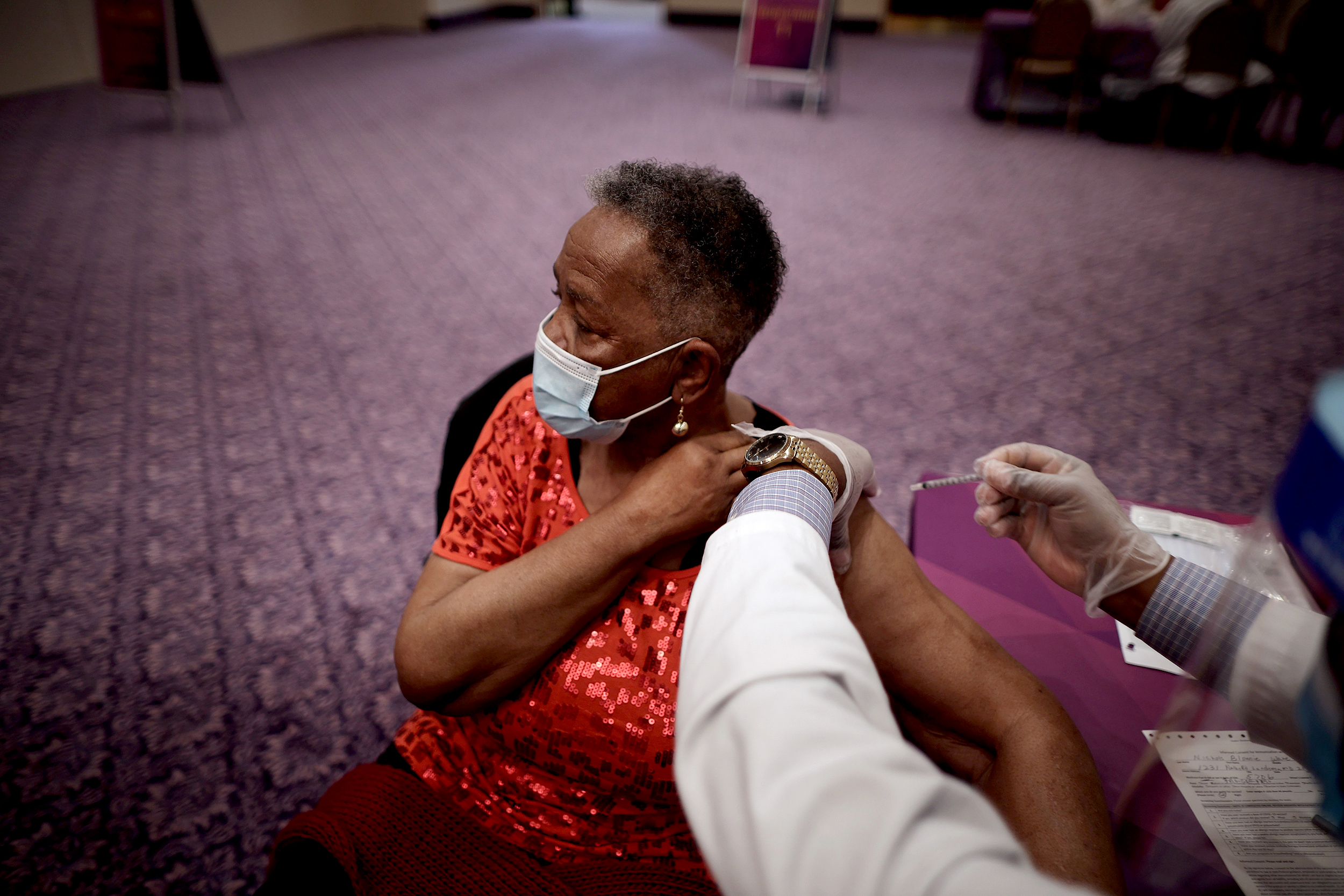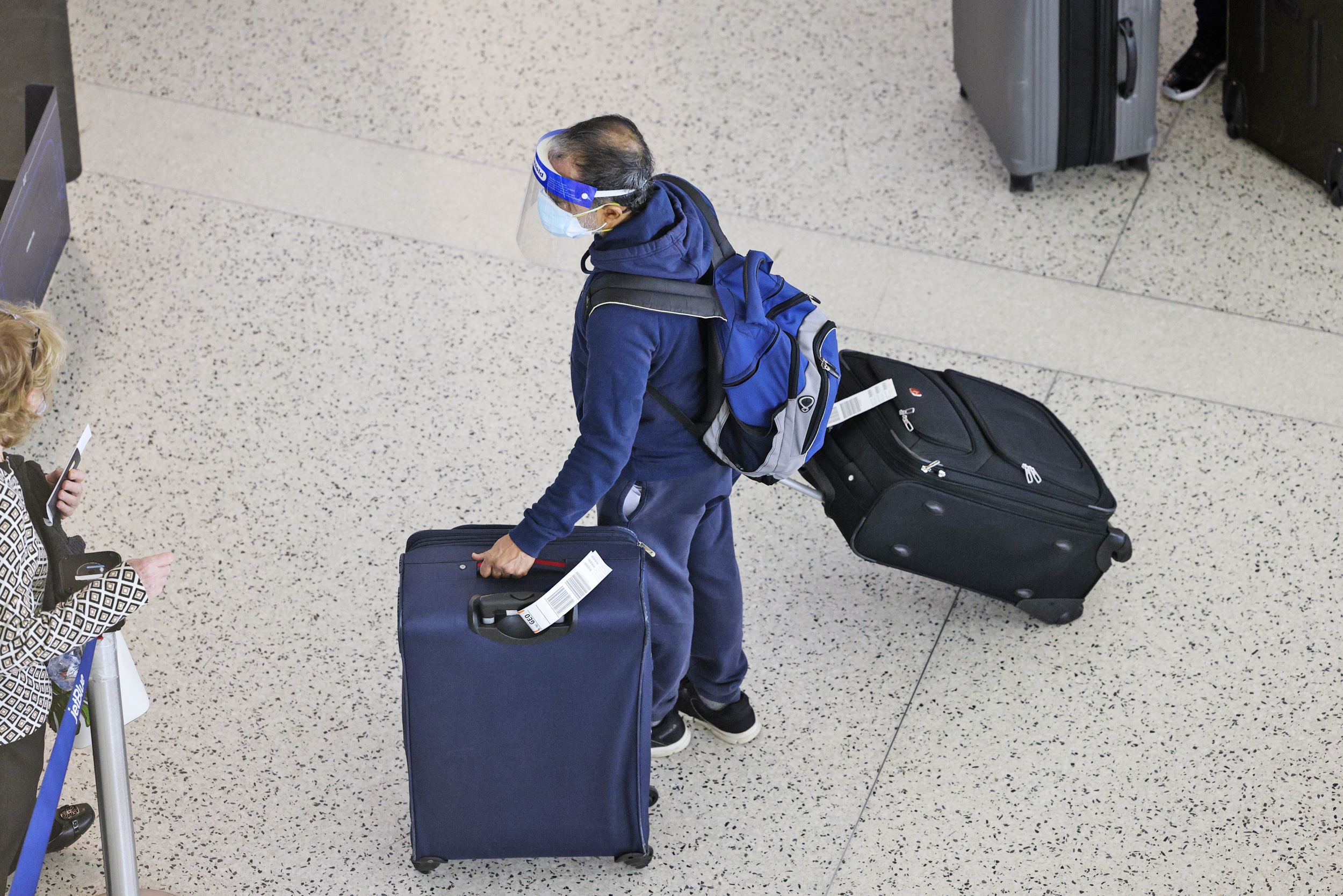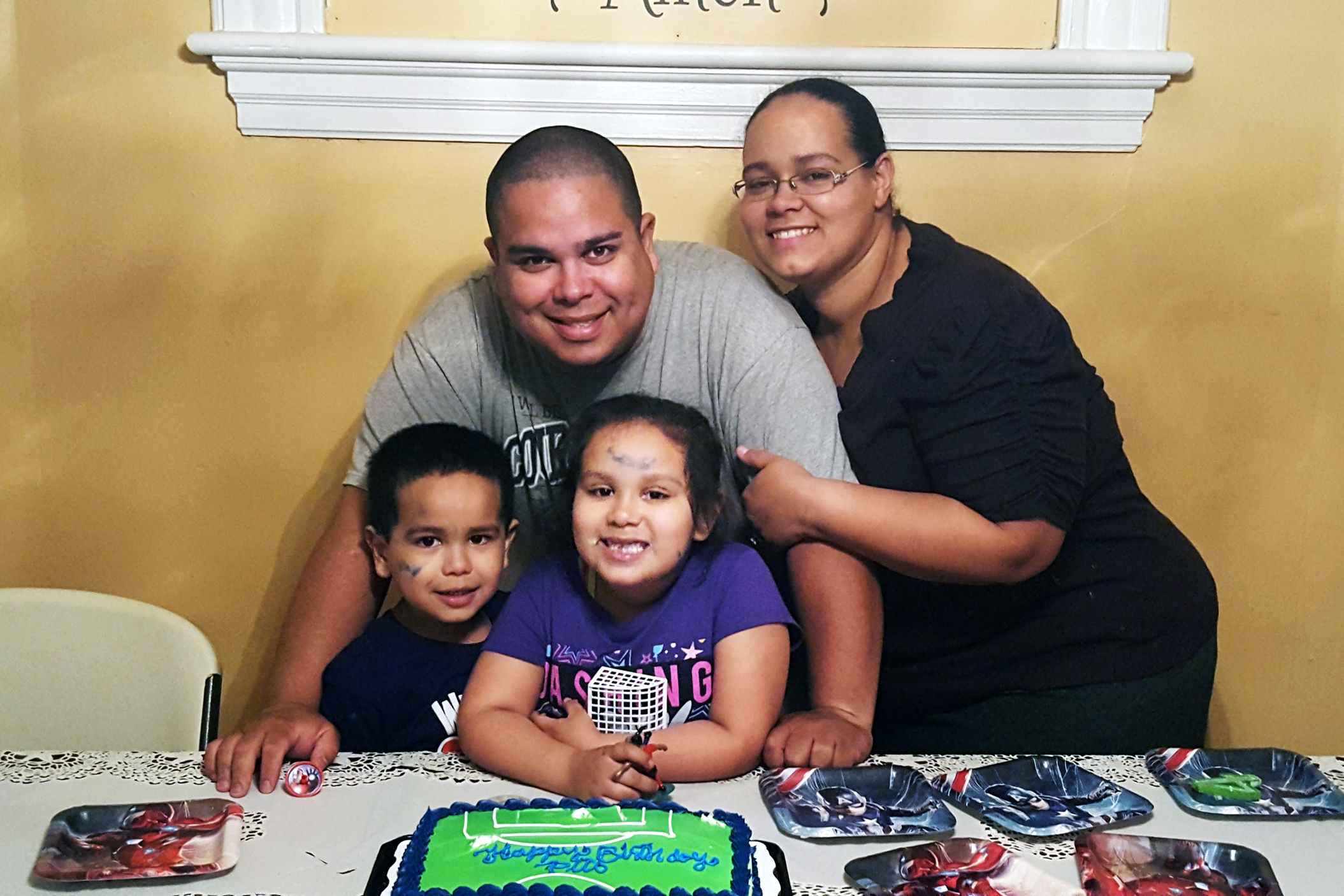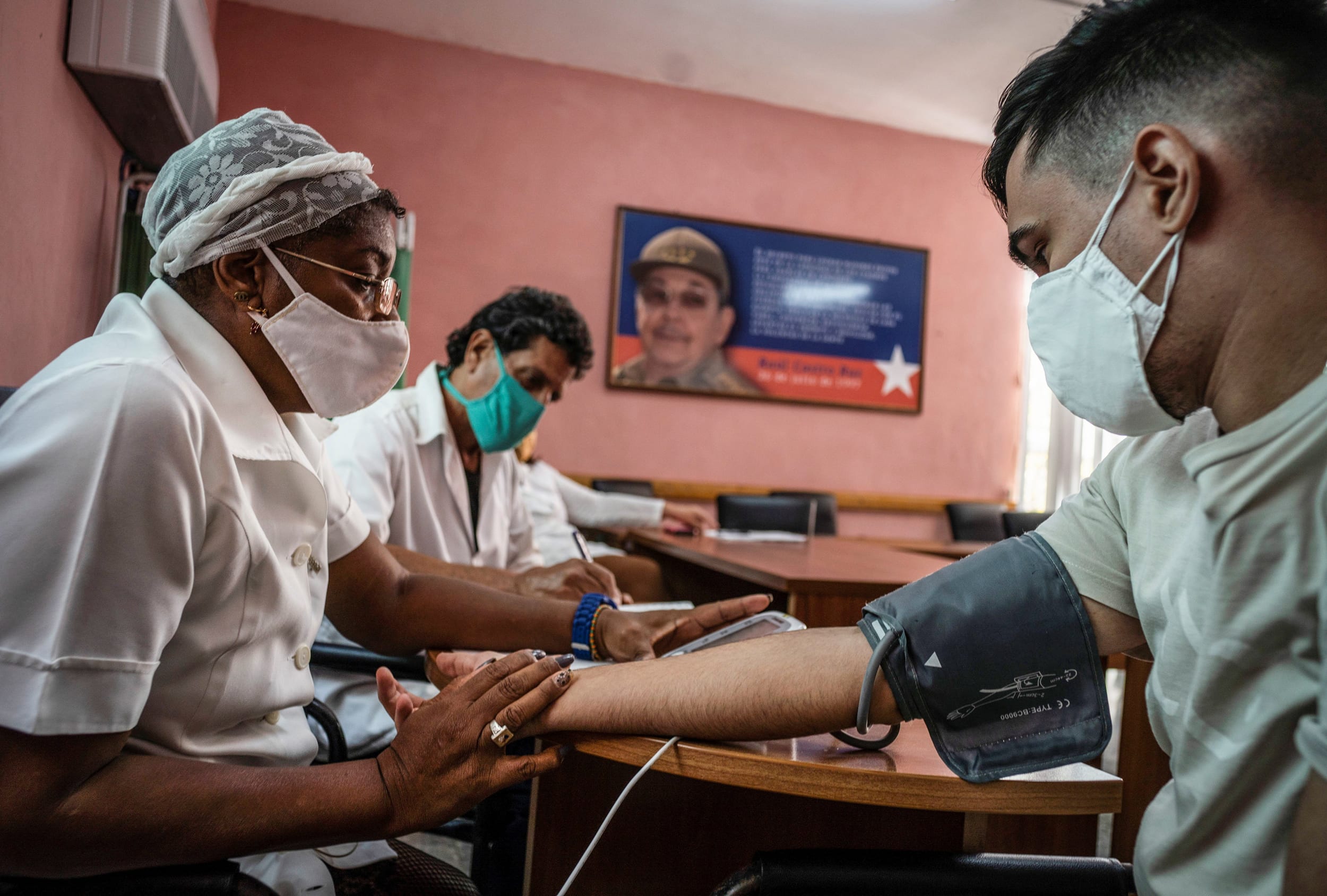
President Trump removes his mask upon return to the White House from Walter Reed National Military Medical Center on October 5. | Win McNamee/Getty Images
Trump’s Covid-19 diagnosis is bad. His allies are trying anything to fix that.
President Donald Trump has tested positive for the coronavirus. As has former New Jersey Gov. Chris Christie and White House press secretary Kayleigh McEnany, Republican Sens. Mike Lee of Utah and Thom Tillis of North Carolina, former senior White House counselor Kellyanne Conway, and Trump campaign manager Bill Stepien, among other officials.
This is bad — for Trump, but also for his efforts to remain in the White House past 2020. The White House’s handling of Trump’s diagnosis has been shambolic, with staffers and household staff left unaware of their own contacts with the disease. Many conservatives, including supporters of the president, have recognized this.
But what is objectively true does not always make political hay — especially with the election mere weeks away, millions of votes already cast, and Trump currently behind former Vice President Joe Biden in the polls in multiple battleground states.
Trump’s allies and supporters in conservative media are hunting desperately for a narrative that will make this clearly, objectively, obviously bad news seem less bad.
They’ve found two main lines of attack: One argues Trump’s diagnosis and what they see as an inevitable rapid recovery will prove once and for all that the Covid-19 pandemic has been massively overblown.
Trump’s closing argument: COVID’s not that big of a deal https://t.co/74OC4DTyjx pic.twitter.com/1HQKe4J8Yn
— HotAir.com (@hotairblog) October 6, 2020
The other argues Trump’s diagnosis will benefit the president politically, no matter his current health status. Perhaps he’ll gain a “sympathy vote,” or maybe he’ll better understand the disease. That’s what one Trump campaign spokesperson said on Fox News on Monday, arguing that Trump now has firsthand experience with the disease (and Joe Biden does not).
These are not good-faith arguments. These would not be the arguments being made by supporters and allies of President Trump if Joe Biden were diagnosed with Covid-19 (they were certainly not made in 2016 when then-candidate Hillary Clinton was diagnosed with pneumonia). And they are not the arguments of a campaign imbued with self-confidence.
This is the logic of necessity and political expediency. And the question is not whether these arguments are correct but whether they will prove politically effective.
Trump’s Covid-19 diagnosis is very bad news for him and his campaign
The diagnosis is bad for Donald Trump, whose age and general health put him at higher risk for severe Covid-19. Though his medical team at Walter Reed National Military Medical Center attempted to reassure journalists (and the nation) over the weekend that the president was “doing very well,” culminating in his planned discharge Monday night, his physician also disclosed that Trump had needed supplemental oxygen on Friday. And, as my colleague Julia Belluz noted, the drugs the president is taking might indicate the true seriousness of his case.
Trump’s diagnosis is also, very clearly, bad for his reelection campaign. A Covid-19 diagnosis most likely removes the possibility of Trump getting the proverbial band back together to hold big rallies full of throngs of cheering (and largely unmasked) fans in battleground states. In response to Trump’s absence, the campaign has reportedly launched “Operation MAGA,” sending Vice President Pence, Trump’s children, and other surrogates out on the trail. But while Mike Pence is many things, he is not Donald Trump.
More than scrambling Trump’s campaign schedule, though, the Covid-19 diagnosis also upended the president’s entire campaign theory: one in which the pandemic that is still infecting and killing thousands of Americans every day “affects virtually nobody” besides the very elderly, and besides, it’ll be gone soon.
The Trump administration has invested heavily in creating the appearance of normalcy. Rather than increase spending to help out-of-work Americans and struggling businesses (as some populist conservatives have urged), the administration has chosen to push states to reopen. The Republican National Convention barely referenced the coronavirus, except to declare the pandemic over.
And again and again, members of the Trump administration and allies of the president have eschewed basic protections — from masks to distancing — including at the ceremony announcing Amy Coney Barrett’s nomination to the Supreme Court that may have resulted in multiple infections. (On the issue of handling the coronavirus, Joe Biden currently leads, perhaps in part because Joe Biden seems willing to acknowledge the disease in the first place.)
Trump may tweet about how he feels “better than I did 20 years ago!” despite reportedly being on supplemental oxygen mere days earlier. But he — and a host of his closest allies — still contracted Covid-19, and that is still, well, bad.
Striking criticism of Trump from @JohnCornyn on Covid:
“I think he let his guard down and I think in his desire to try to demonstrate that we are somehow coming out of this and that the danger is not still with us—I think he got out over his skis”https://t.co/y9lZ1Ypbmj
— Lindsay Wise (@lindsaywise) October 5, 2020
Unless Covid-19 just isn’t that bad?
Trump and his allies have downplayed every aspect of the epidemic for months. Now they are forced to square that with the fact that the 74-year-old president was hospitalized with a disease he has suggested impacts the weak.
So some supporters of the president and others are arguing that Trump’s diagnosis may be indicative, not of the risks the disease presents to everyday Americans and a reminder to continue following the very health protocols this White House has largely flouted, but of the idea that the Covid-19 pandemic is wholly overblown.
The Federalist’s Mollie Hemingway argued on Twitter on Monday that Trump was demonstrating the “fake” narratives of “Big Media” with his purported recovery from Covid-19 — a recovery that, it should be noted, is far from certain.
Big Media and other Biden campaign operatives need you to believe that COVID is a certain death sentence, which is why they downplay facts on actual fatality rates, etc. They are *livid* that Trump is once again demonstrating how fake their narratives are.
— Mollie (@MZHemingway) October 5, 2020
On Friday, after Trump tweeted about his diagnosis but before his hospitalization, Trump’s coronavirus pandemic adviser Dr. Scott Atlas told Fox News, “It is no surprise that people get the infection, even with precautions. I anticipate a complete and full and rapid recovery back to normal after his necessary confinement period. I anticipate he’ll be back on the road and in full swing.” He added, “He is a very, very healthy guy. And the overwhelming majority of people, even at his age, do fine with this.”
Atlas does not have a background in immunology, and he hasn’t been alone in arguing that perhaps the disease just isn’t that bad — former House Speaker Newt Gingrich and Sen. John Kennedy (R-LA) made similar arguments.
The media has deep investment in fearing Coronavirus. President Trump’s quick recovery and optimistic attitude is a repudiation of their deepest pathologies.They want to live in fear.He refuses to live in fear.we are the land of the free and the home of the brave-except in media.
— Newt Gingrich (@newtgingrich) October 6, 2020
“It’s not nearly as lethal as the experts told us it would be,” Sen. John Kennedy, R-Louisiana, just said on Fox News when asked about President’s Trump’s COVID-19 infection.
— Steve Peoples (@sppeoples) October 5, 2020
Much of the response from some of Trump’s biggest political allies has been performative sycophancy, a public show of support for the president intended for an audience of Trump and Trump alone. For example, Rep. Matt Gaetz and Sen. Kelly Loeffler (the latter of whom is in a tough reelection battle against another Republican) both tweeted allusion to Trump’s alleged superhuman strength.
President Trump won’t have to recover from COVID.
COVID will have to recover from President Trump. #MAGA
— Rep. Matt Gaetz (@RepMattGaetz) October 5, 2020
COVID stood NO chance against @realDonaldTrump! pic.twitter.com/GtNPOHkDqF
— Kelly Loeffler (@KLoeffler) October 5, 2020
Or maybe Trump getting Covid-19 is good!
But let’s say Covid-19 is indeed bad. What if Trump getting Covid-19 is then, in some way, good, a sign of his bravery and willingness to “walk out there on that battlefield,” or at the very least, politically advantageous? Perhaps he’ll gain valuable sympathy from the public as he grows in understanding of the pandemic that has wracked the country. (Or perhaps not.)
That’s the argument being put forth by at least one Trump campaign spokesperson, Erin Perrine, who told Fox News that Trump now had “firsthand experiences” of fighting a disease that Biden took preventative measures against (which Trump and his allies have repeatedly mocked him for).
“He has experience now fighting the coronavirus … those first-hand experiences, Joe Biden doesn’t have those” — Trump campaign spokesperson @ErinMPerrine attacks Joe Biden for not getting coronavirus pic.twitter.com/wRMGOVUpc1
— Aaron Rupar (@atrupar) October 5, 2020
The Federalist’s Joy Pullmann wrote Monday:
President Trump knew the risks of staying in public, and he chose to face those risks along with the American people he leads, rather than hiding masked in the White House basement. There is something to be said for a leader getting in the trenches with his troops during a war despite the risks to his safety. It could even be called courage.
In a video recorded on Sunday, Trump himself said that through his fight with the disease, “I learned a lot about Covid. I learned it by really going to school. This is the real school.” But on Monday, he tweeted a video of himself saying not to be afraid of the coronavirus, as “we have the best medical equipment,” (though perhaps the president has access to equipment that might not be available to others), adding:
“I knew there’s danger to it, but I had to do it. I stood out front. I led. Nobody that’s a leader would not do what I did. And I know there’s a risk. There’s a danger, but that’s okay. And now I’m better. And maybe I’m immune, I don’t know.”
He later vowed to return to the campaign trail.
But these efforts to shape the narrative on Trump’s brush with Covid-19 are just that. They are not indicative of a deeper truth on the matter, but a fight to find a path forward after the president of the United States contracted a disease he has dismissed for months while hundreds of thousands of people have died and millions of others have lost their jobs because of his administration’s unwillingness to do more.
Polling indicates that most Americans think that Trump has handled the White House outbreak of Covid-19 poorly, just as they view his handling of the nation’s struggle with the pandemic poorly.
NEW: Two-thirds of Americans say President Trump handled the risk of coronavirus infection to others around him irresponsibly, according to a new CNN Poll. 69% of Americans said they trusted little of what they heard from the White House. https://t.co/tTlOVBgy70
— Jeff Zeleny (@jeffzeleny) October 5, 2020
It is hard to make objectively bad news less bad, or perhaps even good. And in the case of Trump and Covid-19, it might be impossible.
Millions turn to Vox each month to understand what’s happening in the news, from the coronavirus crisis to a racial reckoning to what is, quite possibly, the most consequential presidential election of our lifetimes. Our mission has never been more vital than it is in this moment: to empower you through understanding. But our distinctive brand of explanatory journalism takes resources. Even when the economy and the news advertising market recovers, your support will be a critical part of sustaining our resource-intensive work. If you have already contributed, thank you. If you haven’t, please consider helping everyone make sense of an increasingly chaotic world: Contribute today from as little as $3.


